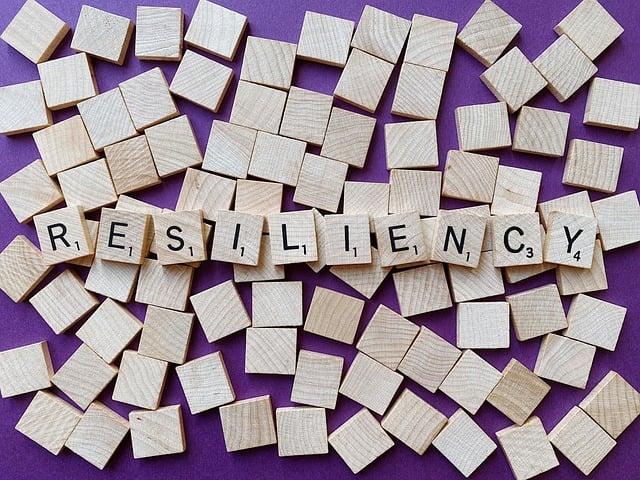In a world marred by shifting dynamics and emerging challenges, Pakistan stands at a pivotal crossroads—a nation rich in history and potential, yet grappling with a myriad of public policy dilemmas that could shape its future. As the country navigates the complexities of economic reform, social equity, environmental sustainability, and governance, it finds itself in a unique position to redefine its trajectory. Transforming Pakistan requires not only acknowledgment of the past but also a bold vision for the future, one that harmonizes the aspirations of its diverse populace with practical strategies for progress. This article delves into the key public policy challenges that lie ahead, illuminating the paths that hold the promise of transforming this vibrant nation into a model of resilience and innovation. Join us as we explore the critical issues that Pakistan must address to unlock its true potential and foster a more prosperous, equitable society for all its citizens.
Navigating Economic Resilience Amid Global Shifts
In the context of evolving global dynamics, it is essential for policymakers in Pakistan to embrace a forward-thinking approach that prioritizes sustainable growth and inclusivity. The reconfiguration of trade relationships, shifts in consumer behavior, and the rise of technological advancements present both opportunities and challenges. Investing in education and skills development will play a crucial role in equipping the workforce to meet the demands of a changing economy. Additionally, fostering innovation through public-private partnerships can enhance productivity and drive economic diversification.
Moreover, addressing structural vulnerabilities will be vital in fortifying Pakistan’s economic foundations. Key focus areas should include strengthening regulatory frameworks, enhancing access to finance for small and medium enterprises (SMEs), and promoting sustainable agricultural practices. A strategic approach encompassing fiscal discipline and robust infrastructure development can create a resilient economic environment. The following table outlines potential regulatory reforms essential for addressing these challenges:
| Regulatory Reform | Impact |
|---|---|
| Streamlining Business Licenses | Encourages entrepreneurship by reducing hurdles |
| Tax Incentives for SMEs | Boosts local production and job creation |
| Environmental Regulations | Promotes sustainable practices in industries |

Revamping Education: Cultivating a Skilled Workforce for Tomorrow
In an era defined by rapid technological advancements and shifting economic landscapes, the need for a reimagined educational framework has never been more pressing. To equip Pakistan’s youth with the skills essential for tomorrow’s workforce, a comprehensive approach to revamping education is required. This can be achieved through integration of hands-on learning experiences into the standard curriculum, fostering critical thinking, and encouraging problem-solving abilities among students. The focus should be on the following key areas:
- Curriculum Modernization: Adapting curricula to include emerging technologies, such as artificial intelligence, robotics, and data science.
- Vocational Training: Enhancing partnerships with industries to create tailored vocational programs that meet labor market demands.
- Teacher Training: Implementing continuous professional development programs for educators to stay updated with pedagogical innovations.
- Access to Technology: Ensuring that educational institutions are equipped with the necessary technology to facilitate modern learning.
The implementation of these strategies calls for targeted public policies and investments that foster collaboration between government bodies, educational institutions, and private sectors. By prioritizing education, Pakistan can harness its demographic dividend, cultivating a skilled workforce adept at navigating the complexities of the global marketplace. A focused investment in education can serve as a catalyst for economic growth, reducing unemployment rates and enhancing the country’s overall competitiveness.
| Skill Area | Current Gaps | Proposed Solutions |
|---|---|---|
| Technology Skills | Low digital literacy | Integrated tech courses in schools |
| Soft Skills | Poor communication and teamwork | Workshops and group projects |
| Entrepreneurship | Lack of business acumen | Startup incubators and mentorship programs |

Enhancing Healthcare Access: Bridging the Gap for All Citizens
Access to healthcare remains a critical concern in Pakistan, where disparities in service availability hinder many citizens from receiving the medical attention they need. Factors such as geographic isolation, economic barriers, and insufficient infrastructure contribute to a fragmented healthcare system. To address these challenges, it is crucial to implement public policies that promote equity and accessibility. By prioritizing healthcare initiatives that target underprivileged regions and vulnerable populations, the country can work towards a more inclusive approach to health services.
Key strategies to enhance healthcare access include:
- Expansion of Telemedicine: Implementing digital health solutions to reach remote areas and reduce travel costs.
- Community Health Workers: Training and employing local health agents to provide basic healthcare services and education.
- Policy Reforms: Revising healthcare funding mechanisms to ensure more resources are allocated to underserved communities.
- Public-Private Partnerships: Collaborating with private entities to build and maintain healthcare facilities in rural areas.
| Strategy | Expected Outcome |
|---|---|
| Telemedicine | Increased reach and reduced costs |
| Community Health Workers | Enhanced primary care delivery |
| Policy Reforms | Better allocation of resources |
| Public-Private Partnerships | Improved infrastructure and services |

Sustainable Development: Balancing Growth and Environmental Stewardship
The pursuit of prosperity in Pakistan presents a complex landscape where the imperatives of economic growth must harmonize with the necessity of environmental preservation. Policymakers face the crucial task of integrating sustainability into the core of national economic strategies. This entails fostering innovations in renewable energy, sustainable agriculture, and green manufacturing while ensuring that local communities benefit from these transitions. Key measures include promoting public-private partnerships that focus on eco-friendly practices and incentivizing industries to adopt more sustainable methodologies. Additionally, education and awareness campaigns about the importance of environmental stewardship can empower citizens to become active participants in this transformative journey.
To navigate these intertwined challenges, several strategic approaches should be considered:
- Incentives for Green Technology: Provide financial incentives for companies investing in renewable technologies.
- Regulatory Frameworks: Develop stricter regulations to limit pollution and encourage sustainable practices.
- Conservation Programs: Implement programs focusing on afforestation and biodiversity preservation.
- Community Engagement: Involve local communities in decision-making processes regarding environmental conservation.
| Policy Area | Action Required | Expected Outcome |
|---|---|---|
| Energy | Investment in solar and wind energy | Reduce reliance on fossil fuels |
| Agriculture | Promotion of organic farming | Enhance soil health and reduce chemical runoff |
| Manufacturing | Encouraging recycling and waste management | Minimize industrial waste and environmental impact |
Insights and Conclusions
As Pakistan stands at the crossroads of transformation, the journey towards a more resilient and equitable future hinges on addressing its pressing public policy challenges. From revitalizing the economy to ensuring social justice and environmental sustainability, every policy decision carries the weight of potential progress. The path forward may be fraught with complexities, yet it is also rich with opportunity.
As we reflect on the challenges outlined, it is imperative for stakeholders—government officials, civil society, and the private sector—to engage in meaningful dialogue and collaboration. In harnessing collective wisdom and innovative thinking, Pakistan can navigate its obstacles and pave the way for sustainable development.
The future of Pakistan rests not just on policy reforms, but on a shared vision that embraces inclusivity, adapts to changing circumstances, and fosters resilience amidst adversity. As we embark on this transformative journey, let us remain committed to shaping a narrative of hope and renewal—one where every citizen can thrive, and the nation can rise as a beacon of progress in an ever-evolving global landscape. The challenges are daunting, but together, we can chart a course towards a brighter tomorrow.



